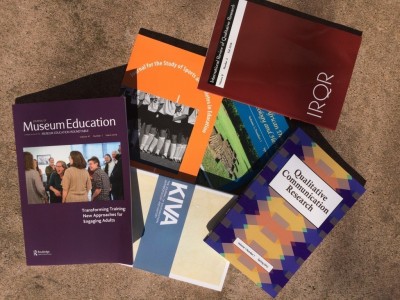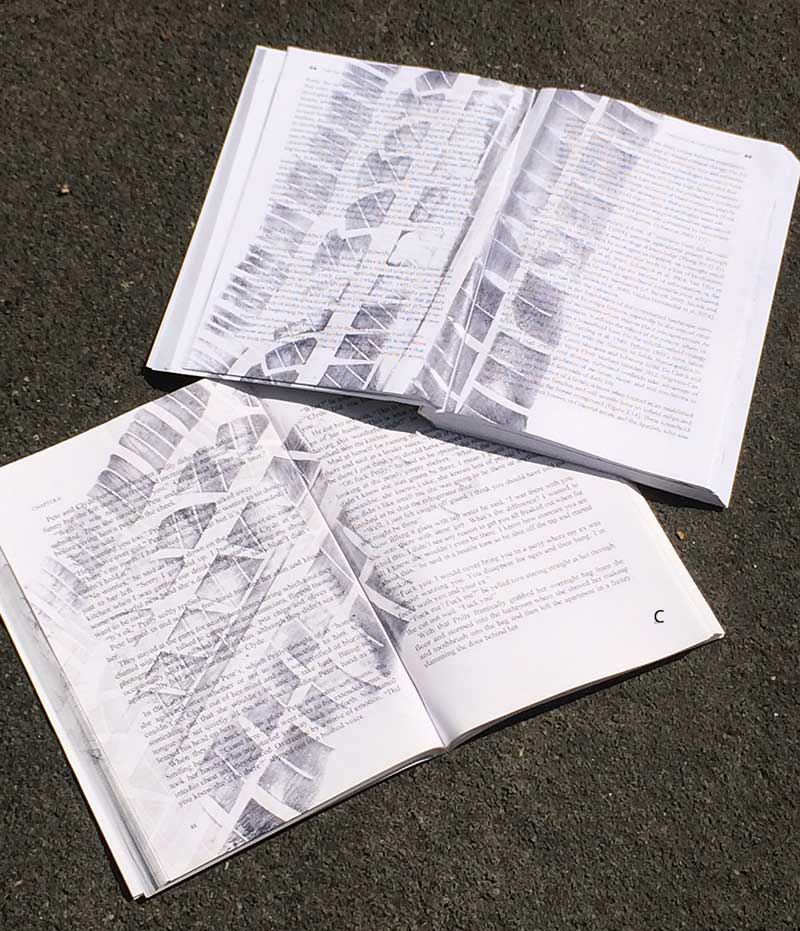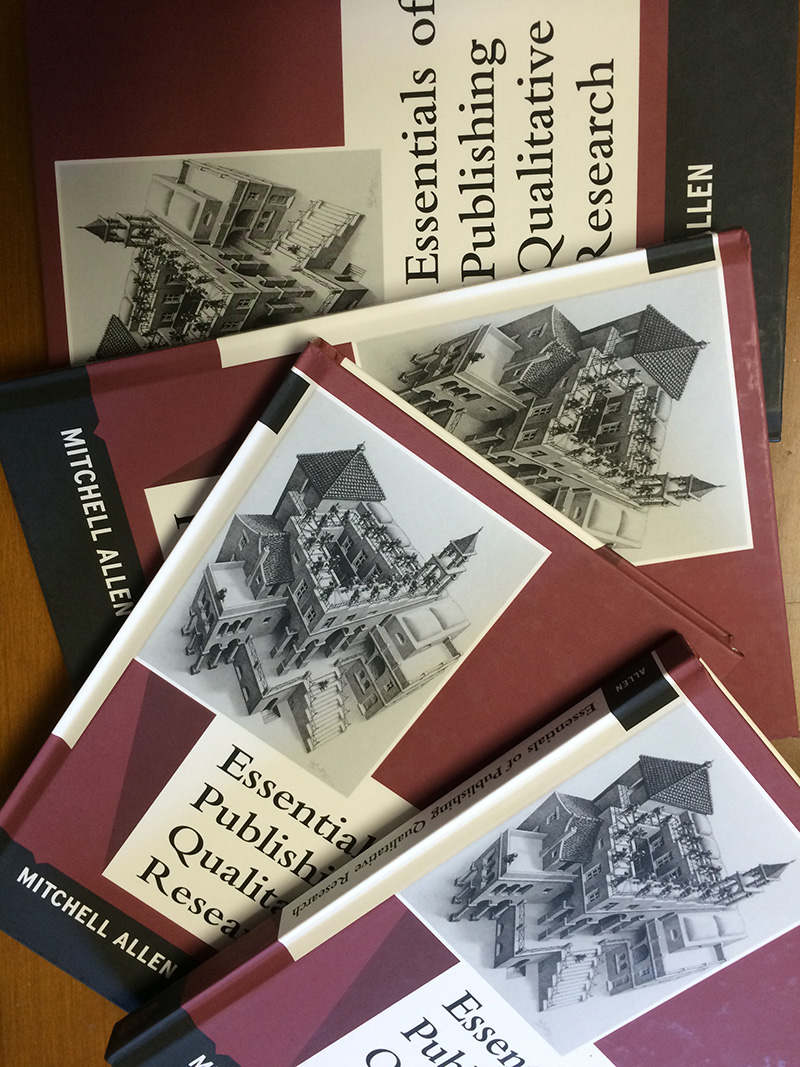


Mitch’s Blog
Editing Your Own Work
Monday, December 26, 2016
It’s winter break and you’re trying to use the time away from class to get an article written, edited, and submitted to a journal. You probably planned to get to two or three out, but your expectations have become more realistic as you actually have to fit time to work between family obligations, evenings with friends, and furtive trips to the bargain bins.
A big part of this process is editing your work after you finally get it written (I have some advice on that too). Not much fun, is it? You’ve sweated blood just getting words on a page. Now you’re expected to go over it again and again to make sure each of those words is the right one. Ugh. You’re not seeing the words any more through your editorial saturation. Time to give up and hit the Submit button. Let someone else make sense of it for you. Your brain is tired.
But have you really edited it enough?
Before you get to sending it out to others, whether for official peer review or just to friends who are happy to help in exchange for you picking up the bar tab next time out, you should have edited your work. And edited it again. And again. That process is much more than just adding an Oxford comma (Note: you’d better do that; wars, insurrections, and rebellions have been started with less valid cause).
 In fact, there are a variety of levels of editing. I’ve outlined them in my Essentials of Publishing Qualitative Research book and again here. Dividing the editing into these different types of tasks allows you to look at your work from the broadest viewpoint to the narrowest. No single edit of a manuscript can do all of these. Plan on several different pass through your manuscript. And, when it is finally time to show it around, pick the right friends to help you with different types of edits. It helps to have a lot of friends and to know what their editorial strengths are, especially if you write a lot. If your friends aren’t trustworthy for this, you should even consider working with a professional editor to make your manuscript shine. I can suggest some people if you contact me.
In fact, there are a variety of levels of editing. I’ve outlined them in my Essentials of Publishing Qualitative Research book and again here. Dividing the editing into these different types of tasks allows you to look at your work from the broadest viewpoint to the narrowest. No single edit of a manuscript can do all of these. Plan on several different pass through your manuscript. And, when it is finally time to show it around, pick the right friends to help you with different types of edits. It helps to have a lot of friends and to know what their editorial strengths are, especially if you write a lot. If your friends aren’t trustworthy for this, you should even consider working with a professional editor to make your manuscript shine. I can suggest some people if you contact me.
- Conceptual edit. This is the big picture. Does your article do what you intended? Does it make the point you wanted to make? Does it provide support for your argument? Can someone read through it (an important consideration) and enjoy it? Learn something? Understand its importance? Your friend in a different discipline might be the person to ask for this round.
- Structural edit. One level down in the pyramid of abstraction is the question of logical sequence. Does the thesis get presented in the beginning of the piece? Does the evidence supporting your argument sit in the middle and follow logically? Do you have a conclusion? Is there a clear roadmap for the reader to know where she is in your argument, what has come before, what comes next? If you were to give your evidence to a jury, would it come back with a conviction? Know any lawyers or logicians? A friend with a logical, systematic mind? They’re the ones who can best help you here.
- Content edit. This is what most worry about the most, but is only one level of editing. Did you transcribe that interview quote exactly? Do you cite everyone who ever wrote anything important on your topic? Do you have the publication dates right in your bibliography? These are the questions to ask of your expert friends, the ones who know your field as well as or better than you do.
- Stylistic edit. Academic writing can vary from abstruse and turgid to, well, kinda informal. Is your style consistent and appropriate for the audience? What you write in a research
 article for a flagship journal will be different than what you put in a blogpost. Be consistent in your style. Also, each of us has our writing quirks. One publisher I worked for was incapable of writing a sentence without including a parenthetic phrase (usually unnecessary) in it. I have the bad habit of starting sentences with conjunctions. “And I think…” or “So you should try…” Once you know your weak points as a writer, or once your editorial friend points out that you use the word “unpack” on every page, take another pass through the manuscript and eliminate that word as much as you can.
article for a flagship journal will be different than what you put in a blogpost. Be consistent in your style. Also, each of us has our writing quirks. One publisher I worked for was incapable of writing a sentence without including a parenthetic phrase (usually unnecessary) in it. I have the bad habit of starting sentences with conjunctions. “And I think…” or “So you should try…” Once you know your weak points as a writer, or once your editorial friend points out that you use the word “unpack” on every page, take another pass through the manuscript and eliminate that word as much as you can. - Copyedit. This is where your former English major friends come in handy, perhaps the only time they’ll ever had the opportunity to use their college major. Right grammar, right punctuation, subject/verb agreement. Completeness and consistency of your references, not only internally but following the APA or Chicago style manual. All the stuff you hated when you took freshman composition. All the stuff that drives you batty when your students submit their term papers. If you have an English major as a trusted friend, you may never ever have to figure out when to use “which” and when “that.”
- Proofreading. A lesser version of the copyedit above. There/their/they’re. Misspelt… or is it misspelled…mispelled…mis…whatever. Incorrectly spelled words.
The editing process is not drudgery for everyone. Some people, myself included, love editing other people’s work. A good thing too, since my job title was Editor for decades. Editing my own work? That’s a different story. I hit the same point of dense brain fog as everyone else. I can only see things from the inside my head, not from the outside. Even an editor needs a good editor. Especially an editor. I will bug my friends too. A good copyeditor went over my website text before it was launched.
After gathering your friends’ comments and paying them off at your local watering hole, look at their suggestions seriously. Did you really account for the concerns they raised? They didn’t make suggestions to make your life hard, but to improve the piece. They’re friends, remember? Sounds like yet another trip through the manuscript before hitting the Submit button. Time consuming? Painful? Possibly.
But your writing will be better for it.
Back to Scholarly Roadkill Blog
Scholarly Roadside Service
ABOUT
Who We Are
What We Do
SERVICES
Help Getting Your Book Published
Help Getting Published in Journals
Help with Your Academic Writing
Help Scholarly Organizations Who Publish
Help Your Professional Development Through Workshops
Help Academic Organizations with Program Development
CLIENTS
List of Clients
What They Say About Us
RESOURCES
Online Help
Important Links
Fun Stuff About Academic Life


